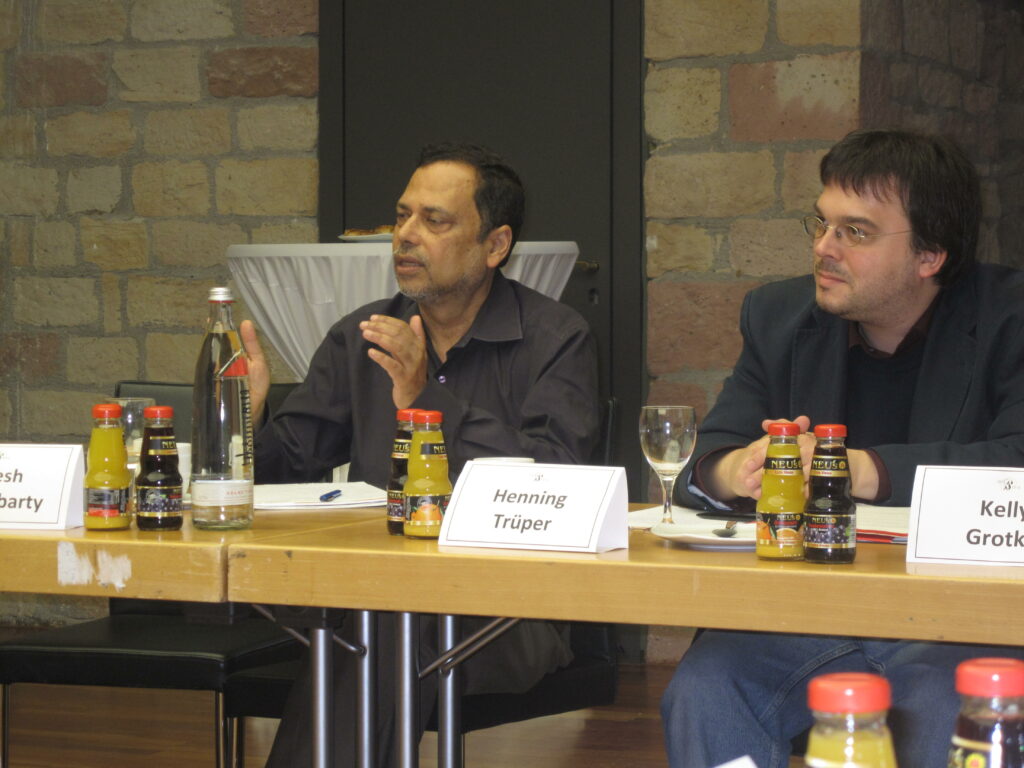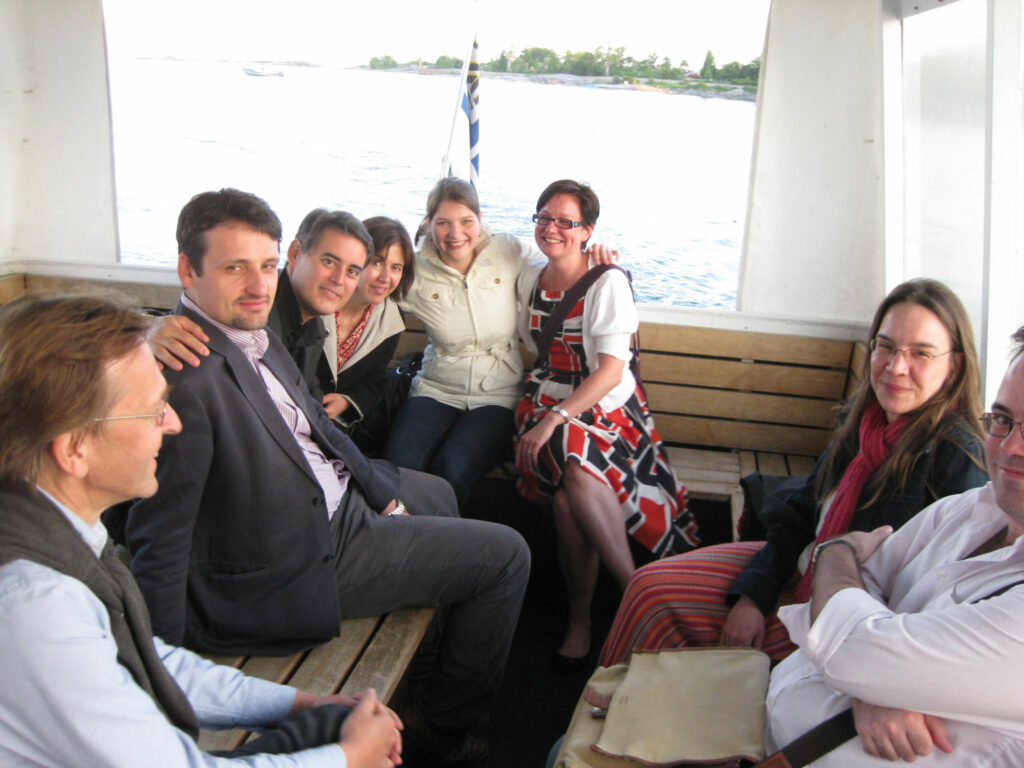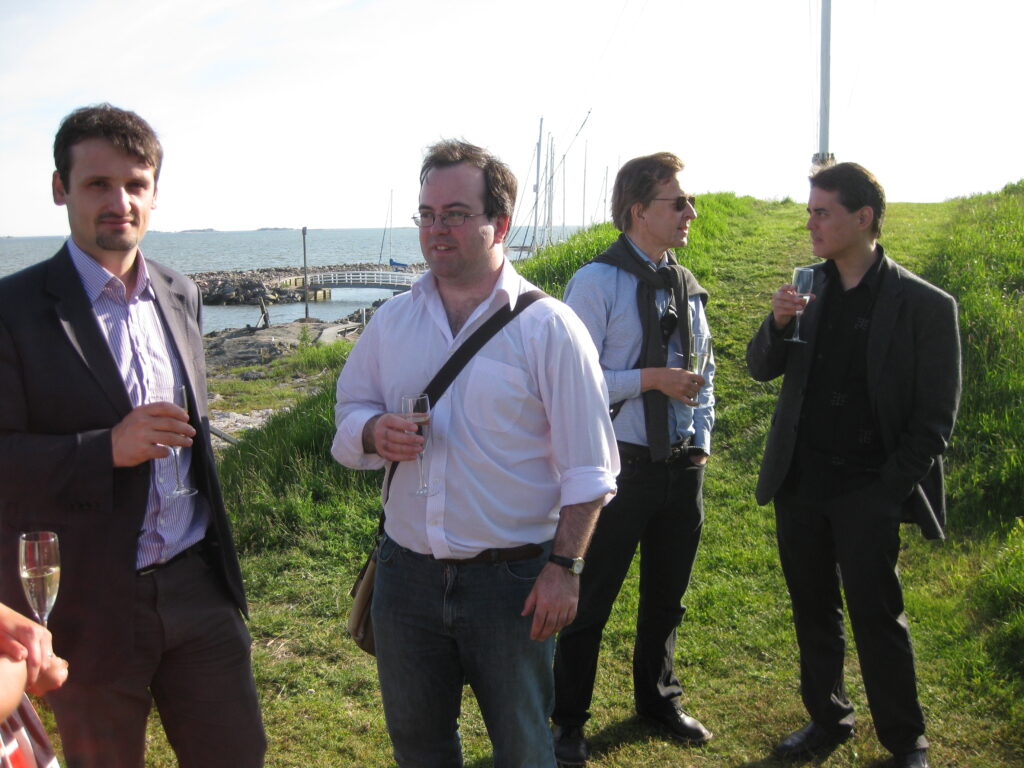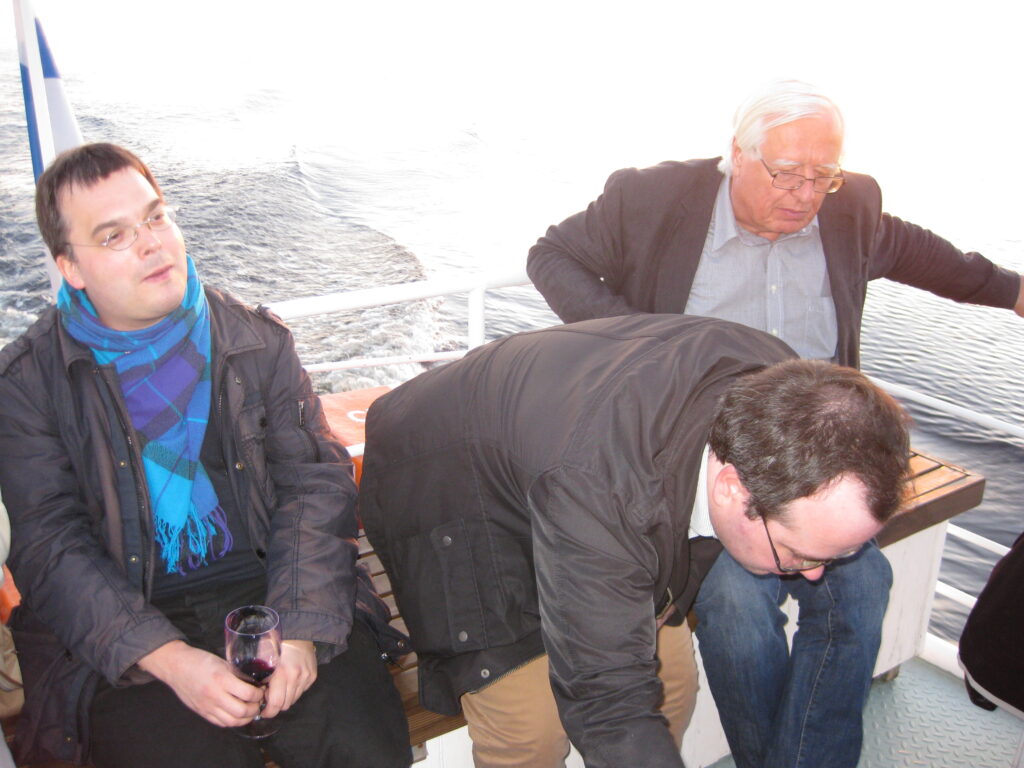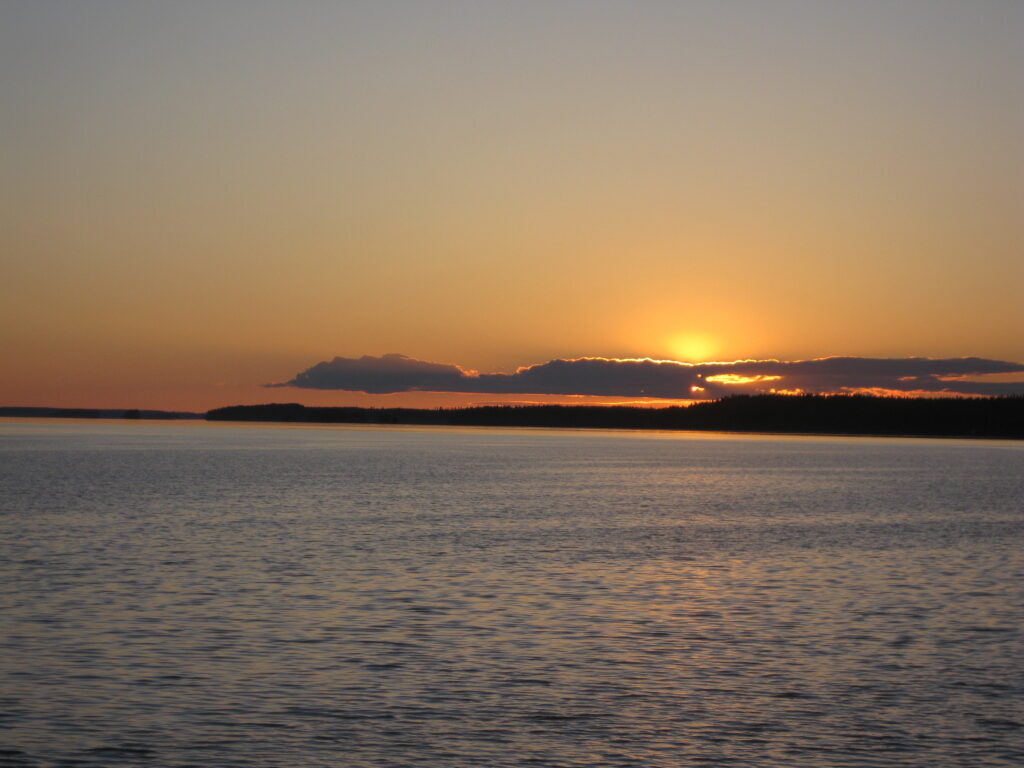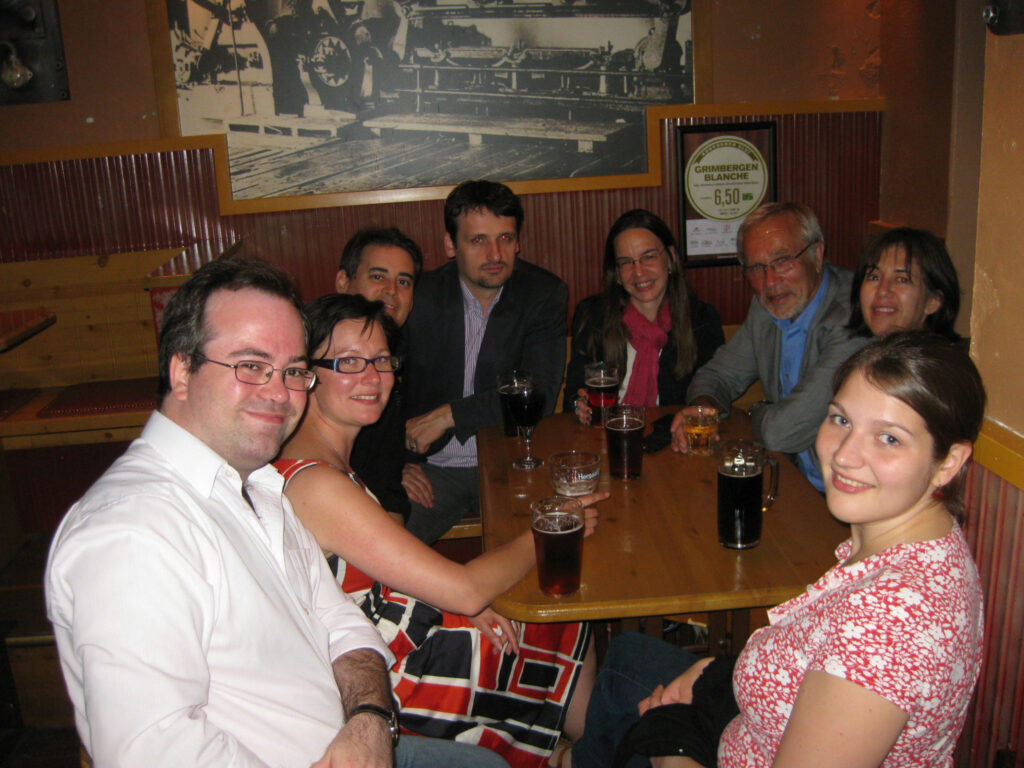Between Restoration and Revolution, National Constitutions and Global Law:
An Alternative View on the European Century 1815-1914 (EReRe)
Directed by Professors Martti Koskenniemi and Bo Stråth, University of Helsinki
Sponsored by the European Research Council (advanced grant)
September 2009-August 2013
Download the full pdf application of the project to the ERC.
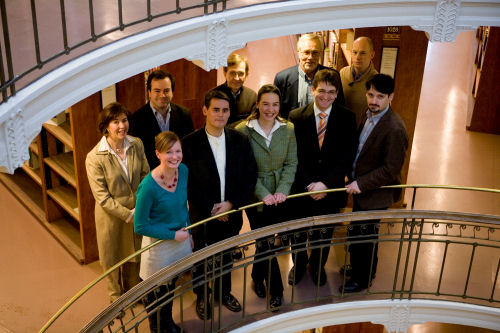
The Erere Team. Front from the left: Minna Vainio, Francisco Ortega, Kelly Grotke, Markus Prutsch, Adrian Brisku. Back: Liliana Obregón, Tom Hopkins, Martti Koskenniemi, Bo Stråth, Peter Haldén
Europe between 1815 and 1914
The EReRe Project was established at the University of Helsinki in 2009 to provide an alternative view of the European Century, 1815-1914. A seminar series in the autumn of 2007, Helsinki Research Seminars, prepared the ground for the sponsoring application to the European Research Council, ERC. From the outset, we assumed that the century is traversed by themes and tensions that, in one way or another, continue to dominate ideas about European peace and progress today. These need to be highlighted to enable an adequate historical understanding of the difficulties of the present moment, including the nature of the alternatives faced by European decision-makers today. We also insist that focus must reach beyond European institutions to grapple with the themes and tensions that traversed the past two centuries nationally and globally. The present situation results from national, European and global developments at all three levels. They must all be captured in their interrelatedness, which must be done realistically; by realistic, we mean a view of the past as open towards the future, fragile and contentious in its achievements, and contingent rather than deterministic in outcome.
Here is a concise account of the project’s initial considerations:
“Europe today teeters upon a precipice; the apparent choice placed before its peoples is one between dissolution and a union subordinated to the demands of the bond markets. Behind the strident political rhetoric accompanying this dilemma lies a profound failure of political imagination that emerges from a deeply a-historical view of Europe’s past. There is an urgent need for a more realistic history that rejects any teleological understanding of Europe as a self-propelling project on a steady march towards a predetermined goal. Instead, the fragility of European peace and progress, so evident today, must be highlighted. Recent attempts to look for historical analogies to the EU in the American constitutional convention that met in Philadelphia in 1787 or in the Holy Roman Empire of the German Nation that collapsed in 1806 ring hollow. They bypass Europe’s long experience of violent nation-building and global expansion. Europe was not born anew in 1945. The legacies of its past and of the attempts that Europeans have made to deal with that past pervade the institutional structures of contemporary Europe and the mentalities that govern it. Planning for the future must entail a reckoning with this past, but such a reckoning must go beyond the conventional pieties attached to that much-repeated phrase, ‘Never again!’ The dark ambiguities of the European inheritance are no more exhausted by inquiry into the cataclysm of the early twentieth century than its potential is defined by the achievements of the last sixty years. The conflicts of the interwar years and the political order that emerged as a safeguard against their return were deeply rooted in the political, legal and economic regimes that had emerged in the nineteenth century. In the late twentieth century, it was common to write European history as an epic of hubris, nemesis and redemption. A crude narcissism in such self-aggrandizement betrayed the origins of this mode of thinking in the triumphalist histories of earlier generations, and it carried with it the note of special destiny that had characterized them. However, the idea that Europe continues to struggle with the creations and failures of its moment of ascendancy is powerful, and this research project was conceived in the spirit of that struggle.”
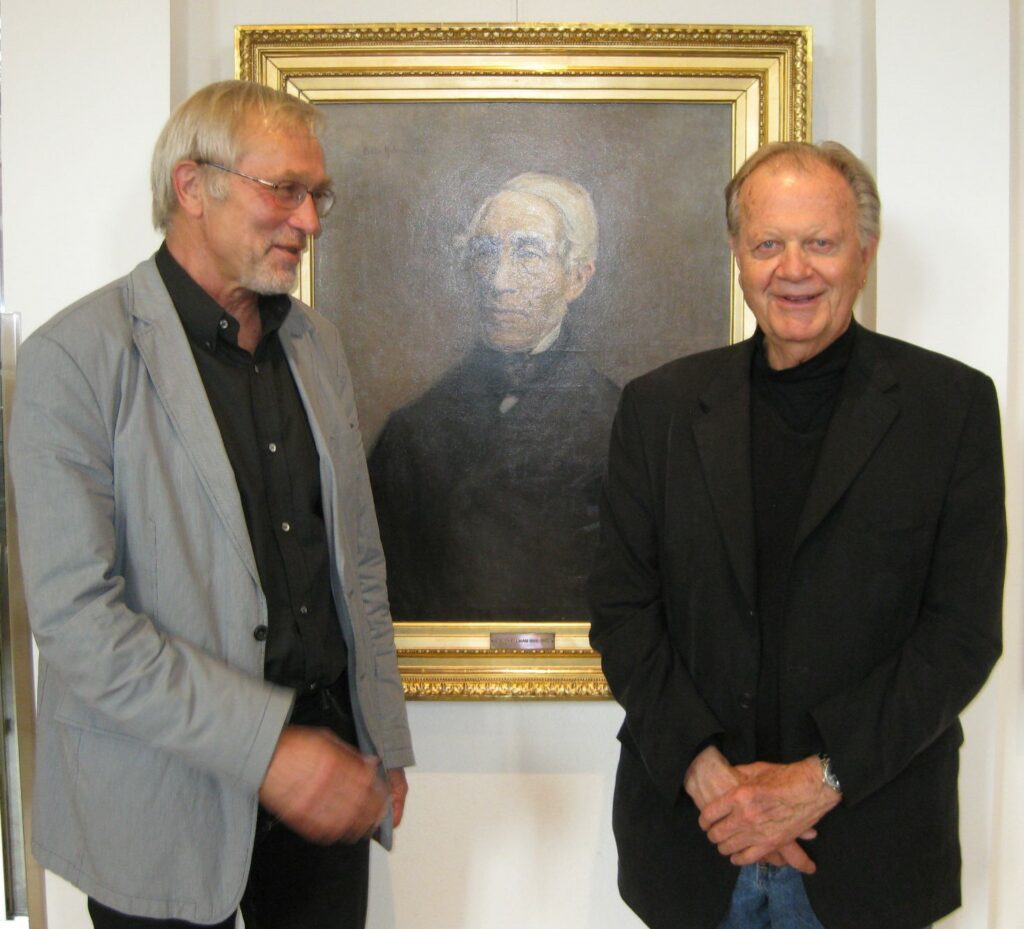
A smile with Hayden White in front of Johan Vilhelm Snellman, the Hegelian.
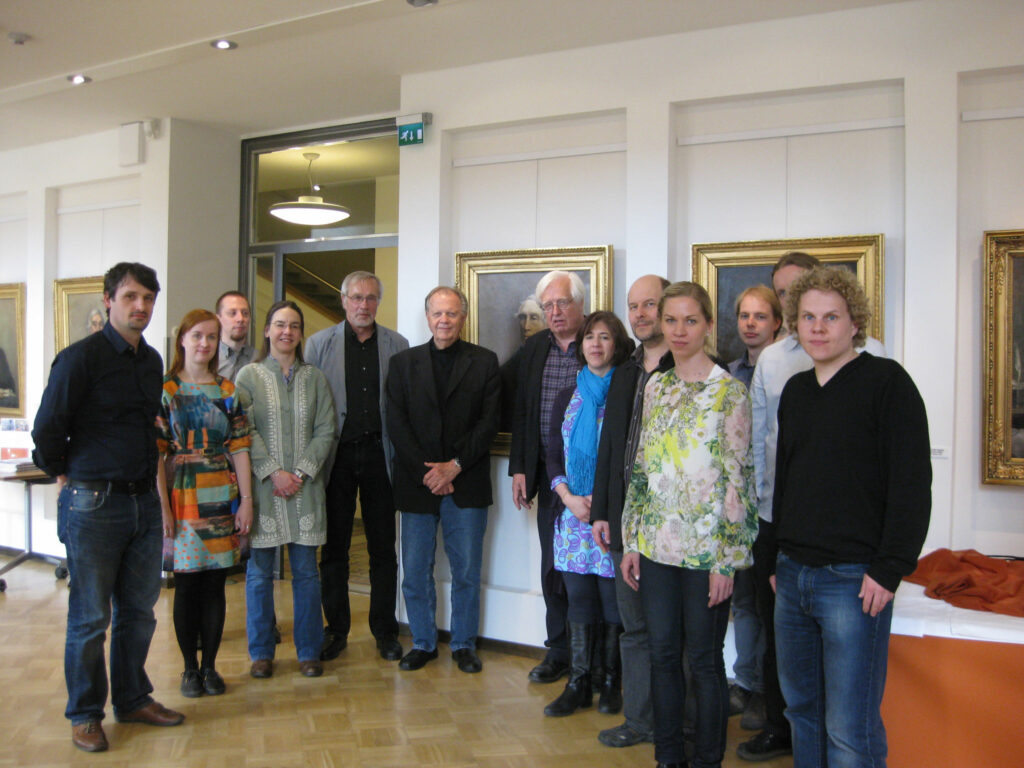
Project meeting with Hayden White.
The project organized weekly seminars with presentations from team members and external guests. Three working groups operated to get deeper into the research problem, each through several workshops: Constitutionalism and the Legalisation of Power, Paradoxes of Peace, and Teleology and History. The latter convened from 2010-2012 in Berlin, Rome, and Hambacher Schloß. For its final meeting on the Saima in Karelia in June 2013, see Helsinki Research Seminars: .
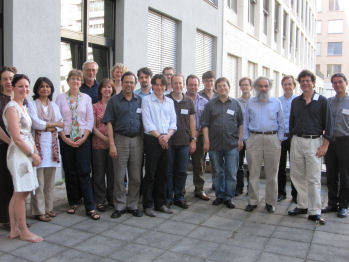
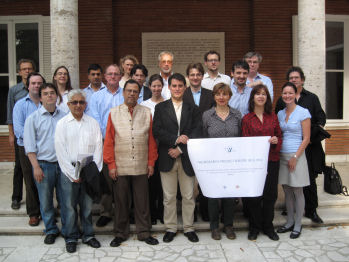
The project resulted in several publications: Martti Koskenniemi and Bo Stråth (eds), Creating Community and Ordering the World 2014, Dipesh Chakrabarty, Sanjay Subrahmnyam, Henning Trüper (eds), Historical Teleologies in the Modern World 2015, Thomas Hippler and Milos Vec, Paradoxes of Peace in the Nineteenth Century Europe. Oxford: Oxford University Press 2015, Bo Stråth, Europe’s Utopias of Peace: 1815, 1919, 1951 2016, Adrian Brisku,Politial Reform in the Ottoman and Russian Empires 2017, Markus Prutsch, Caesarism in the Post-Revolutionary Age. Crisis, Populace and Leadership. Europe’s Legacy in the Modern World. London: Bloomsbury. To the right are Dipesh Chakrabarty and Henning Trüper, co-editors of the Teleology volume.
